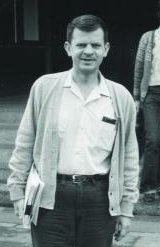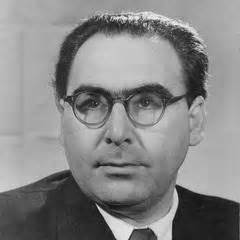A Quote by Alfred Korzybski
Mathematics and logic have been proved to be one; a fact from which it seems to follow that mathematics may successfully deal with non-quantitative problems in a much broader sense than was suspected to be possible.
Related Quotes
Mystery is an inescapable ingredient of mathematics. Mathematics is full of unanswered questions, which far outnumber known theorems and results. It's the nature of mathematics to pose more problems than it can solve. Indeed, mathematics itself may be built on small islands of truth comprising the pieces of mathematics that can be validated by relatively short proofs. All else is speculation.
The broader the chess player you are, the easier it is to be competitive, and the same seems to be true of mathematics - if you can find links between different branches of mathematics, it can help you resolve problems. In both mathematics and chess, you study existing theory and use that to go forward.
Like a stool which needs three legs to be stable, mathematics education needs three components: good problems, with many of them being multi-step ones, a lot of technical skill, and then a broader view which contains the abstract nature of mathematics and proofs. One does not get all of these at once, but a good mathematics program has them as goals and makes incremental steps toward them at all levels.
Mathematics is much more than computation with pencil and a paper and getting answers to routine exercises. In fact, it can easily be argued that computation, such as doing long division, is not mathematics at all. Calculators can do the same thing and calculators can only calculate they cannot do mathematics.
One cannot inquire into the foundations and nature of mathematics without delving into the question of the operations by which the mathematical activity of the mind is conducted. If one failed to take that into account, then one would be left studying only the language in which mathematics is represented rather than the essence of mathematics.
Can the difficulty of an exam be measured by how many bits of information a student would need to pass it? This may not be so absurd in the encyclopedic subjects but in mathematics it doesn't make any sense since things follow from each other and, in principle, whoever knows the bases knows everything. All of the results of a mathematical theorem are in the axioms of mathematics in embryonic form, aren't they?





































